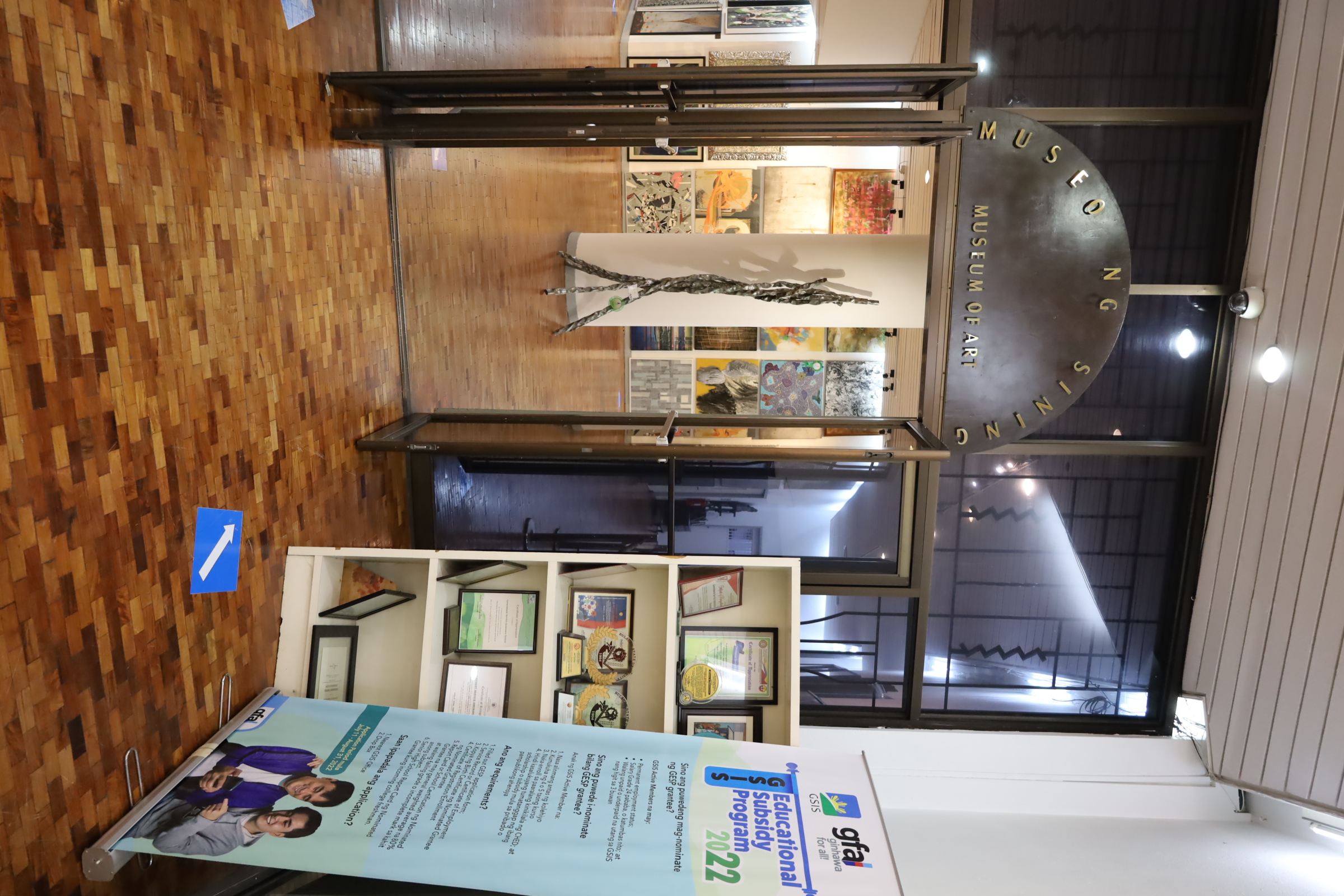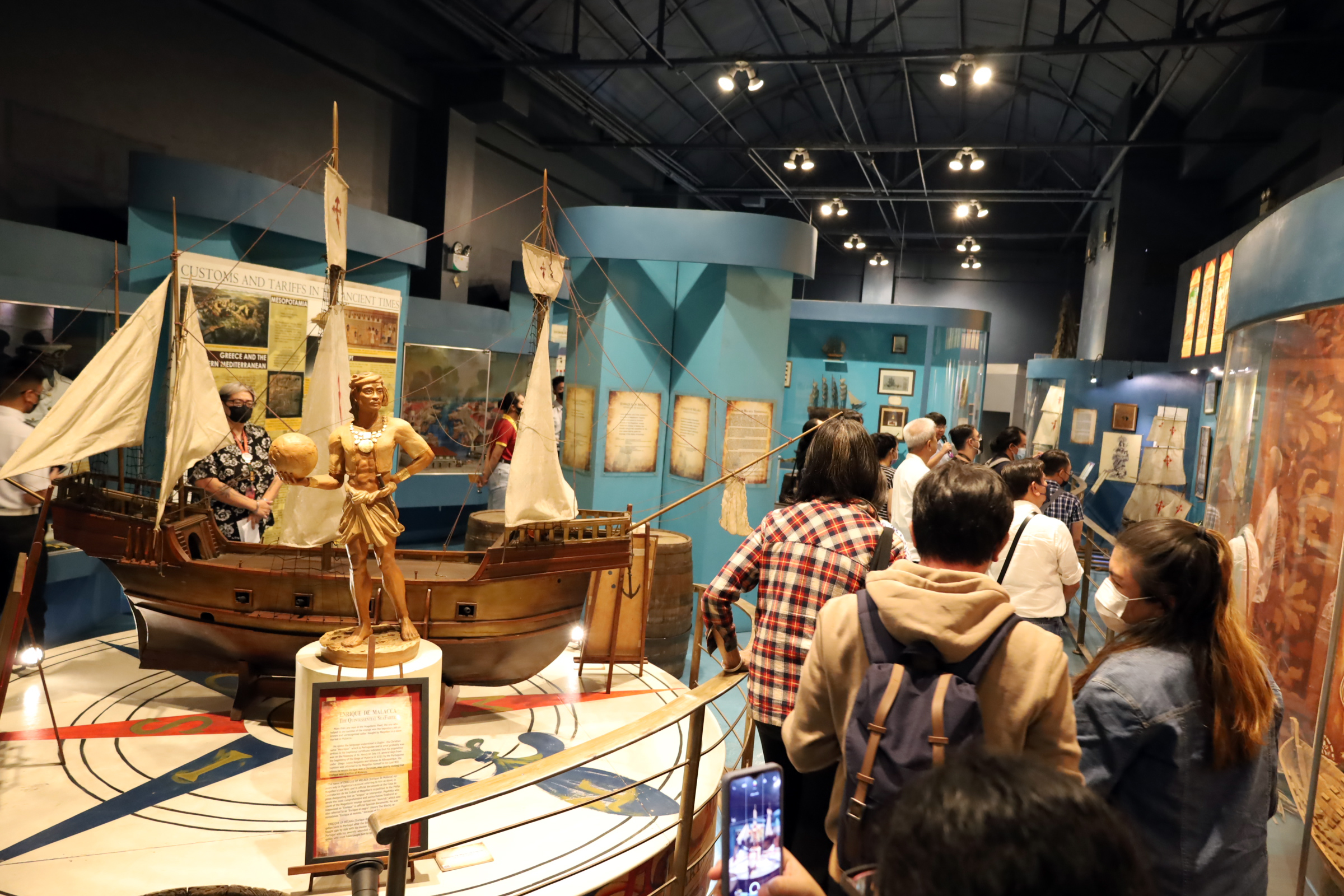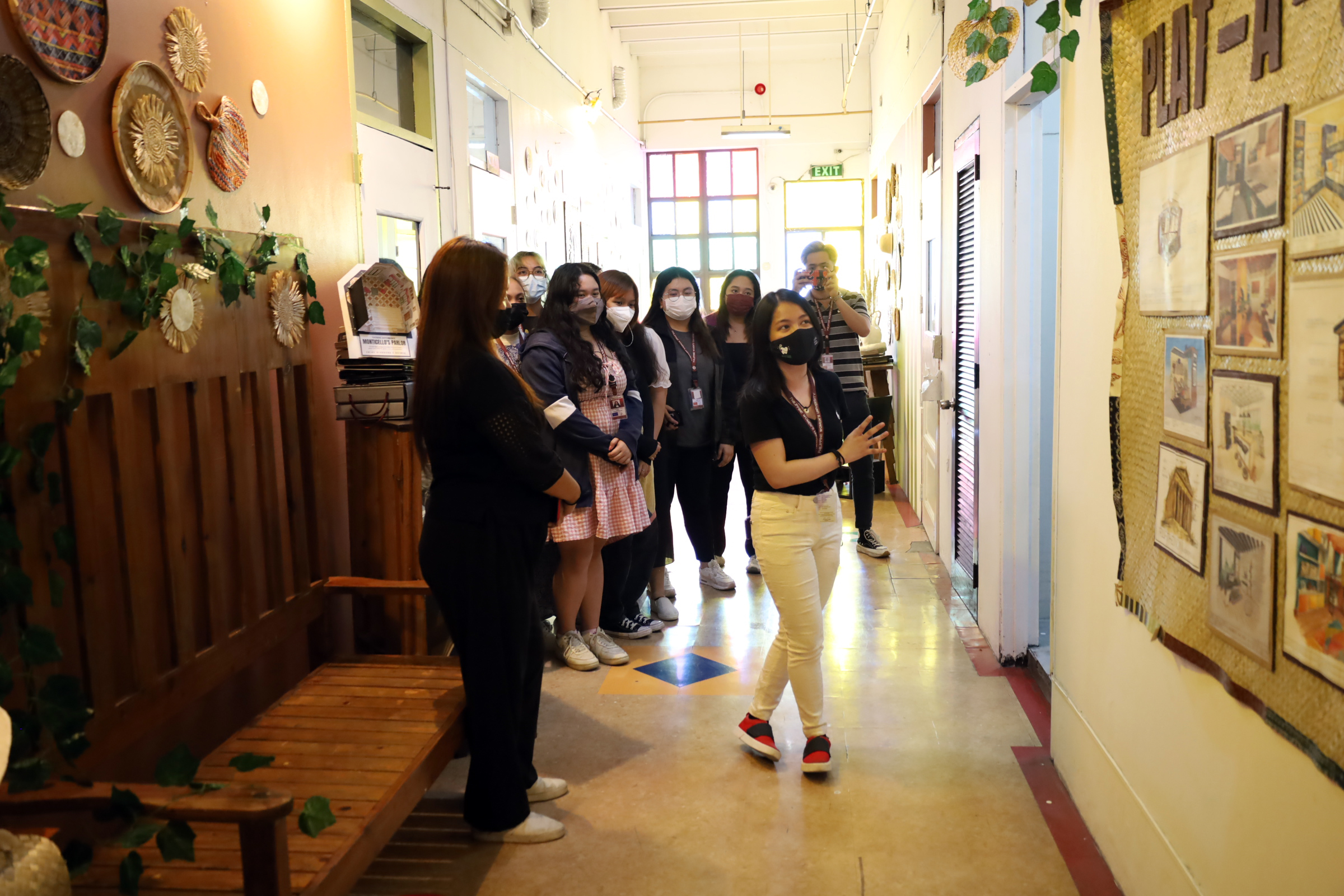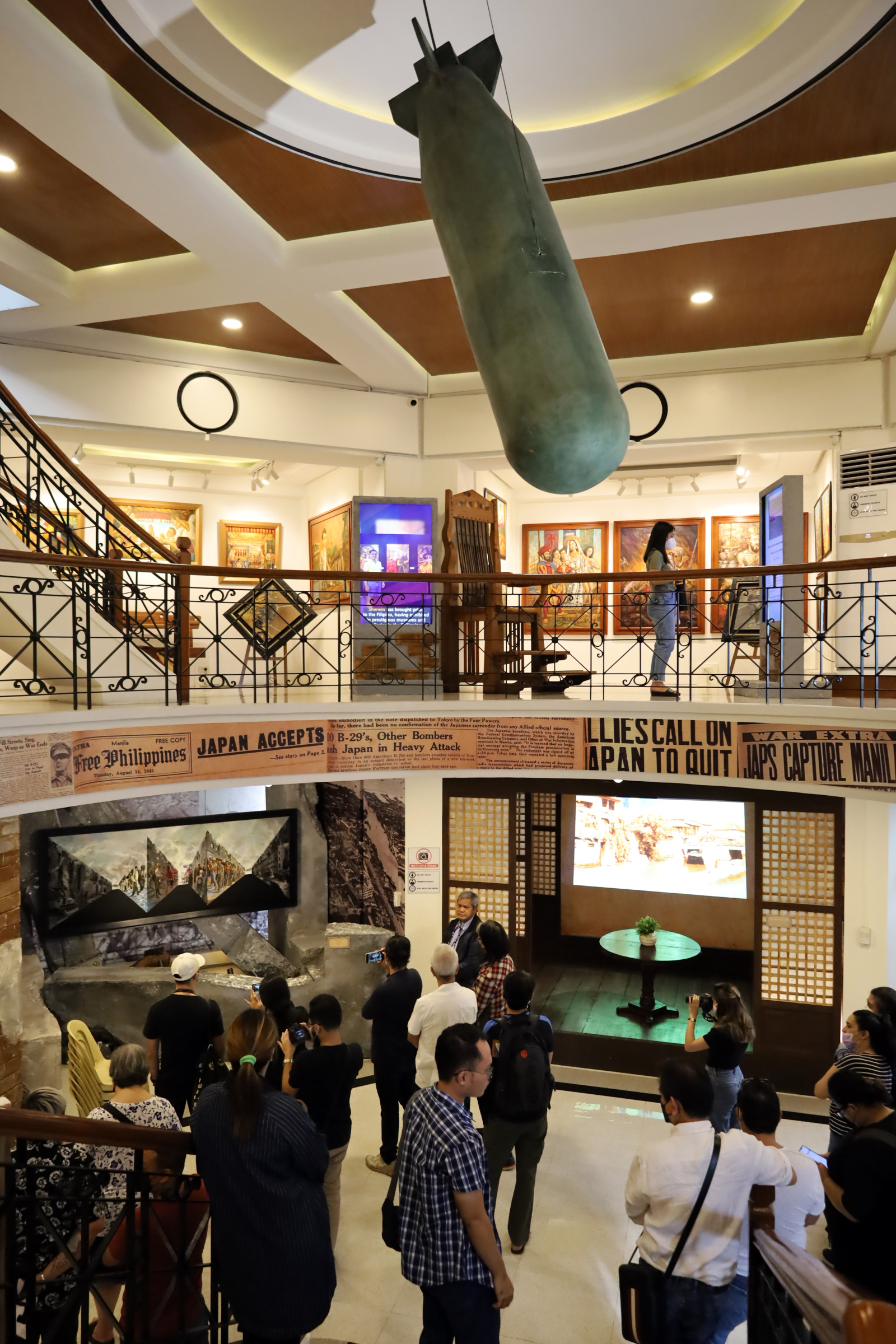Hop-On, Hop-Off Museum Tours At Paseo Museo
13 museums, including five new partners, join this year’s CCP PASINAYA Multi-Arts Festival

GET ready for two days of unique museum experience with the CCP PASINAYA’s Paseo Museo, slated on February 4 and 5, 2023, at 13 participating museums and galleries in Pasay and Manila.
One of the festival’s main components, CCP partnered with various galleries, museums and art spaces around the Paseo Museo Loop to put the spotlight on communal artistic spirit and collaborations. This year, the CCP has five new partners – AIMS Museo Maritimo, GSIS Museum, the Philippine Women’s University (PWU) School of Fine Arts & Design (SFAD) Jose Conrado Benitez (JCB) Gallery, Adamson University Art Gallery, and the Manila Clock Tower Museum.

Located at the Asian Institute of Maritime Studies (AIMS) Lighthouse along Roxas Boulevard corner Arnaiz Avenue, Pasay City, AIMS Museo Maritimo put the spotlight on Philippine maritime history, maritime trade routes and the contributions of Filipino seafarers in the global seafaring industry.
Launched in 2012, the maritime-themed museum is dedicated to Filipino seafarers and pays homage to their contribution to nation-building from the distant past to the present; utilizing imaginative exhibitions and displays to illustrate what the Philippine seafaring, training, and manning history is and who its pioneers and leaders are. Furthermore, it serves as a repository for valuable collections of marine art, ship models, and nautical artifacts.
Established in 1996, the GSIS Museo ng Sining is home to some of the best artwork collections in the country. In 2012, however, GSIS turned over the management of the GSIS Art Collection to the National Museum, with around 100 pieces, majority of which were done by National Artists Fernando Amorsolo, Carlos “Botong” Francisco, Vicente Manansala, HR Ocampo, Jose Joya, Ang Kiukok, Bencab, and Federico Alcuaz. They also have pieces by visual artists Diosdado Lorenzo, Jose Blanco, Juvenal Sanso, and Rodolfo Ragodon. The collection is currently on display at the 3/F National Art Gallery. Filipino painter Juan Luna’s “Parisian Life” is also entrusted to the management of the National Museum.
On display for the weekend at the GSIS are some of the retained works of other renowned artists as well as the winning entries of the annual GSIS Art Competition. These pieces are now on display at the GSIS Art Gallery, including the largest mural publicly on display done by Amorsolo entitled “History of Music” that used to adorn the Metropolitan Theater Lobby wall. The Museum still conducts its regular activities like exhibits for new and established groups of artists, lectures and seminars, special tours, concerts and other performances, among others.
Commemorating its 75th anniversary last year, GSIS put on display some of their memorabilia items on view at the museum entrance hallway. These items are now re-displayed and re-exhibited at the lower gallery of the museum. The space allocated for these items is renamed the GSIS Gallery of Institutional Memory.
The GSIS Museo ng Sining also handles other artworks and artifacts (antiques, decorative items, pieces of furniture, etc.) from foreclosed and important properties of GSIS such as Puerto Azul, Coconut Palace, and the Metropolitan Theater. Some of these items are also put on display.

First opened in 2012, the PWU’s SFAD JCB gallery has mounted visual art exhibitions featuring the works of PWU SFAD alumni, students, and faculty, as well as visiting artists. Managed under the Office of the University President, with the supervision of the Dean of SFAD, the gallery provides the confident affirmation of PWU as an avenue for art, culture and heritage that contributes to the expansion of the visual art language. It enjoins other schools within the university, and visiting cultural producers to engage with the gallery to avail its facilities for exhibitions and scholarly discourse related to art, culture and heritage.
Located at the left side of the AdU Theater, the Adamson University Art Gallery first opened in September 27, 2005, but was renovated in 2013 following the brutalist design with modernists and de-constructivist elements, by Arch. Sylvester Seño, a faculty member of the AdU College of Architecture. From being a part of the St. Theresa’s Auditorium and its surroundings, the art gallery has mounted several arts and photo exhibits and serves as holding area for special guests of the theater.

The Manila Clock Tower Museum features a variety of multi-sensory exhibits of the historical Battle of Manila highlighted by the Wall of Heroes. Launched in 2022, the museum initiated the adaptive reuse of the Manila City Hall’s clock/watch tower. Under the management of the Department of Tourism, Culture and Arts of the Vity of Manila, the museum has five levels, designed and curated by Ohm David and Elba Cruz, with light design by Meliton Roxas, Jr.
Other participating museums and galleries, who have been PASINAYA’s regulars, include: National Museum of Fine Arts, National Museum of Anthropology, National Museum of Natural History, Museum of Contemporary Art and Design, Casa Manila, Museo de Intramuros, Fort Santiago, and Museo Pambata.
Paseo Museo, formerly Museum Mile, is in partnership with the Museum Foundation of the Philippines, who provided shuttles that enables audiences to visit the participating museums and galleries. This year, there will be 15 vehicles that will ferry the PASINAYA Paseo Museo viewers to Routes A, B and C* (*Saturday only).
Paseo Museo is part of the PASINAYA 2023: The CCP Open House Festival, the largest annual multi-arts festival in the country, featuring a wide variety of exciting activities. Audiences can experience-all-you-can, pay-what-you-can with over a hundred shows, workshops, and other various activities in music, theater, dance, visual arts, film, and literature.
Following the theme “Piglas Sining,” the biggest multi-arts festival returns live with five components; aside from Paseo Museo: Pagtitipon, a gathering of regional partners to share plans and programs; Palihan or workshop-all-you-can in all the art forms to be conducted by experts in their field, Palabas, see-all-you-can performances and film screenings featuring the CCP resident companies, professional, amateur and community-based artists and arts organizations in all the art genres; and Palitan, arts market where artists and art groups can pitch to prospective producers and content buyers.
With four outdoor venues at the CCP Complex and at the Tanghalang Ignacio Gimenez, this will surely be the biggest comeback to live events after the pandemic.
